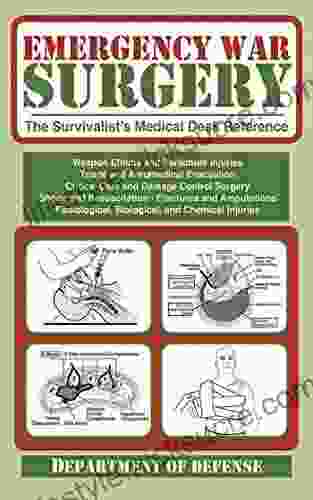Managing Stress: Pocket Study Skills for Success


4.7 out of 5
| Language | : | English |
| File size | : | 1513 KB |
| Text-to-Speech | : | Enabled |
| Screen Reader | : | Supported |
| Enhanced typesetting | : | Enabled |
| Print length | : | 117 pages |
Stress is an inevitable part of student life. From deadlines and exams to social pressures and financial worries, students face a multitude of stressors that can impact their academic performance and well-being. However, it is possible to manage stress effectively and prevent it from becoming overwhelming. By adopting proven stress management techniques and developing effective study skills, students can excel in their studies while maintaining a healthy balance in their lives.
Understanding Stress
Stress is a normal physical and emotional response to challenges or threats. It can be caused by a variety of factors, both positive and negative. Positive stress, known as eustress, can be motivating and help us to perform our best. However, negative stress, or distress, can be harmful and lead to a range of health problems if not managed effectively.
Symptoms of Stress
- Physical: Headaches, fatigue, muscle tension, increased heart rate, sweating
- Cognitive: Difficulty concentrating, forgetfulness, poor decision-making
- Emotional: Anxiety, irritability, mood swings, depression
- Behavioral: Sleep disturbances, changes in appetite, procrastination
Impact of Stress on Academic Performance
Unmanaged stress can have a significant impact on academic performance. Studies have shown that students who experience high levels of stress are more likely to:
- Procrastinate and avoid studying
- Have difficulty concentrating and remembering information
- Perform poorly on exams
- Experience physical and mental health problems that can interfere with studying
Stress Management Techniques
There are a number of effective stress management techniques that can help students to reduce stress and improve their academic performance:
1. Exercise
Exercise is a great way to relieve stress and improve mood. It releases endorphins, which have mood-boosting and pain-relieving effects. Aim for at least 30 minutes of moderate-intensity exercise most days of the week.
2. Relaxation Techniques
Relaxation techniques, such as yoga, meditation, and deep breathing, can help to calm the mind and body. These techniques can be done anywhere, anytime, making them a convenient way to manage stress.
3. Time Management
Effective time management can help to reduce stress by giving students a sense of control over their schedule. Set realistic goals and create a study schedule that allows for breaks and relaxation time.
4. Sleep Hygiene
Getting enough sleep is essential for managing stress. Aim for 7-8 hours of sleep each night and establish a regular sleep-wake cycle, even on weekends.
5. Social Support
Talking to friends, family, or a counselor can provide support and help students to feel less alone. Joining a support group can also be helpful.
6. Healthy Diet
Eating a healthy diet is important for overall health and well-being. Avoid sugary drinks and processed foods, and focus on eating plenty of fruits, vegetables, and whole grains.
Pocket Study Skills
In addition to stress management techniques, developing effective study skills can help students to succeed in their studies and reduce stress. Here are some pocket study skills that students can use anywhere, anytime:
1. Active Reading
Active reading involves reading with a purpose and engaging with the material. Highlight important points, summarize key ideas, and ask questions as you read.
2. Spaced Repetition
Spaced repetition is a study technique that involves reviewing material at increasing intervals. This helps to improve memory and retention.
3. Retrieval Practice
Retrieval practice involves actively trying to recall information without looking at your notes. This helps to strengthen memory and improve recall.
4. Self-Testing
Self-testing is a great way to assess your understanding of the material. Create practice questions and test yourself regularly.
5. Collaborative Learning
Studying with others can be a helpful way to review material and learn from each other. Form study groups or work with a tutor.
Managing stress and developing effective study skills are essential for student success. By adopting the stress management techniques and pocket study skills outlined in this article, students can overcome stress, improve their academic performance, and achieve their academic goals. Remember, stress is a normal part of life, but it is important to manage it effectively to avoid its negative consequences. By taking proactive steps to manage stress and improve their study skills, students can create a positive and productive learning environment for themselves.
4.7 out of 5
| Language | : | English |
| File size | : | 1513 KB |
| Text-to-Speech | : | Enabled |
| Screen Reader | : | Supported |
| Enhanced typesetting | : | Enabled |
| Print length | : | 117 pages |
Do you want to contribute by writing guest posts on this blog?
Please contact us and send us a resume of previous articles that you have written.
 Fiction
Fiction Non Fiction
Non Fiction Romance
Romance Mystery
Mystery Thriller
Thriller SciFi
SciFi Fantasy
Fantasy Horror
Horror Biography
Biography Selfhelp
Selfhelp Business
Business History
History Classics
Classics Poetry
Poetry Childrens
Childrens Young Adult
Young Adult Educational
Educational Cooking
Cooking Travel
Travel Lifestyle
Lifestyle Spirituality
Spirituality Health
Health Fitness
Fitness Technology
Technology Science
Science Arts
Arts Crafts
Crafts DIY
DIY Gardening
Gardening Petcare
Petcare Jeanne Ryan
Jeanne Ryan Carlo Buzzichelli
Carlo Buzzichelli Sheri Van Dijk
Sheri Van Dijk Terry Wieland
Terry Wieland Lizabeth Hardman
Lizabeth Hardman Shaun Gallagher
Shaun Gallagher Stephen Goodwin
Stephen Goodwin Amber Zygutis
Amber Zygutis Chris Carlsson
Chris Carlsson Suzanne Stabile
Suzanne Stabile Elise Christie
Elise Christie Elizabeth S Gilbert
Elizabeth S Gilbert Katherine Kurtz
Katherine Kurtz Jack Freeman
Jack Freeman Shanna Cunning
Shanna Cunning James W Williams
James W Williams Amie Kaufman
Amie Kaufman William Glasser M D
William Glasser M D Jonathan Law
Jonathan Law Byron Nelson
Byron Nelson Stanley J Farlow
Stanley J FarlowK D
 Sheena Johnstone
Sheena Johnstone Matthew L Martin
Matthew L Martin David Burch
David Burch Dolores Kong
Dolores Kong Tahlia Kirk
Tahlia Kirk Josh Taylor
Josh Taylor William Rosen
William Rosen Helena P Blavasky
Helena P Blavasky Ned Vizzini
Ned Vizzini Mark W T Harvey
Mark W T Harvey Amber O Neal Johnston
Amber O Neal Johnston Dan Abnett
Dan Abnett Alexandrea Weis
Alexandrea Weis Nicholas A Christakis
Nicholas A Christakis J Stephen Jones
J Stephen Jones Sharon K Zumbrunn
Sharon K Zumbrunn Jennifer Margulis
Jennifer Margulis Cathy Williams
Cathy Williams Jim Santos
Jim Santos Jean Rose
Jean Rose Alex Polyakov
Alex Polyakov Amir Alexander
Amir Alexander John Maxwell Wood
John Maxwell Wood Dave Hanson
Dave Hanson Don Stradley
Don Stradley Martin Williams
Martin Williams Marshall Goldsmith
Marshall Goldsmith Tom Colicchio
Tom Colicchio Iain Pardoe
Iain Pardoe Dom Amore
Dom Amore Cookie O Gorman
Cookie O Gorman David Yoon
David Yoon Michael Cosgrove
Michael Cosgrove Joe Dan Lowry
Joe Dan Lowry Jack Nisbet
Jack Nisbet Nikhil Bhardwaj
Nikhil Bhardwaj Maria Youtman
Maria Youtman Laurie A Watkins
Laurie A Watkins Don Mann
Don Mann Peter Hayes
Peter Hayes Glenn Stout
Glenn Stout Trevor Day
Trevor Day Jack Tupp
Jack Tupp Ignatius Donnelly
Ignatius Donnelly Amy B Middleman
Amy B Middleman Wendy Margolis
Wendy Margolis Randy Schultz
Randy Schultz Andy Couturier
Andy Couturier Temple Grandin
Temple Grandin Julie Barlow
Julie Barlow Django Paris
Django Paris Jayson Gaddis
Jayson Gaddis Don Bowers
Don Bowers Stephen J Collier
Stephen J Collier Mark Taylor
Mark Taylor Naomi Oreskes
Naomi Oreskes Robert Melillo
Robert Melillo Nick Kolenda
Nick Kolenda Craig Larman
Craig Larman Paul Wieland
Paul Wieland Victoria Wood
Victoria Wood Henry A Zumbrun 2
Henry A Zumbrun 2 Amber Lee Sellers
Amber Lee Sellers Amelia Edith Huddleston Barr
Amelia Edith Huddleston Barr Sterling Test Prep
Sterling Test Prep Jean Christie Ashmore
Jean Christie Ashmore Julie Schacht Sway
Julie Schacht Sway Amelia Parker
Amelia Parker Sarah Woodbury
Sarah Woodbury Tamora Pierce
Tamora Pierce Michael Abayomi
Michael Abayomi Susan White
Susan White Joseph P Weir
Joseph P Weir Michaela Riva Gaaserud
Michaela Riva Gaaserud Hadley Wickham
Hadley Wickham Stephen M Barr
Stephen M Barr Garrett M Fitzmaurice
Garrett M Fitzmaurice Robb Walsh
Robb Walsh David Elkington
David Elkington Gia Giasullo
Gia Giasullo Richard Wagamese
Richard Wagamese Jeff Gaudette
Jeff Gaudette Nikala Smith
Nikala Smith Sarah Morgan Haydock
Sarah Morgan Haydock Peter Worley
Peter Worley Guillaume Haeringer
Guillaume Haeringer Victor J Stenger
Victor J Stenger Martin Pollizotto
Martin Pollizotto Vicki Hearne
Vicki Hearne Jason Thompson
Jason Thompson Claudia J Carr
Claudia J Carr Candida Lawrence
Candida Lawrence John Jacobs
John Jacobs Jake Maddox
Jake Maddox Sian Warriner
Sian Warriner Josiah Hesse
Josiah Hesse Tyler Simmons
Tyler Simmons Gal Dem
Gal Dem Mark Stallard
Mark Stallard H Bedford Jones
H Bedford Jones Pico Iyer
Pico Iyer John Lukacs
John Lukacs Vinod Kumar Khanna
Vinod Kumar Khanna Laura Slinn
Laura Slinn Amber Foster
Amber Foster Jason Borte
Jason Borte Antonio R Damasio
Antonio R Damasio Joan Freeman
Joan Freeman Christopher Cousteau
Christopher Cousteau Reinhold Messner
Reinhold Messner Charles Hall
Charles Hall Amiee Mueller
Amiee Mueller Rachel Gurevich
Rachel Gurevich Dr Scott A Johnson
Dr Scott A Johnson Bethanne Kim
Bethanne Kim Brian Klaas
Brian Klaas Kathy A Zahler
Kathy A Zahler Michelle Newhart
Michelle Newhart Alan Margot
Alan Margot Eric E Bowne
Eric E Bowne Joseph Conrad
Joseph Conrad Traci Gormley
Traci Gormley Catherine Dees
Catherine Dees Christopher Harlan
Christopher Harlan Harley Reid
Harley Reid Laini Taylor
Laini Taylor Warren B Powell
Warren B Powell American Math Academy
American Math Academy Amy Brown
Amy Brown Toni Tone
Toni Tone Jean Van T Hul
Jean Van T Hul Dmv Test Bank
Dmv Test Bank John Ferrell
John Ferrell Kevin Stiegelmaier
Kevin Stiegelmaier John A Buehrens
John A Buehrens Derrick Jensen
Derrick Jensen Mariano Anaya
Mariano Anaya Michael Winkelman
Michael Winkelman Donovan Hohn
Donovan Hohn Clancy Cavnar
Clancy Cavnar Kathy Spratt
Kathy Spratt Amira Mikhail
Amira Mikhail Johan Norberg
Johan Norberg J L Weil
J L Weil Rose Mannering
Rose Mannering Jenny Landreth
Jenny Landreth Roman Gelperin
Roman Gelperin Camille Glenn
Camille Glenn Theresa I Soto
Theresa I Soto Andrey Ryanskiy
Andrey Ryanskiy Jd Mader
Jd Mader Amy Blakeslee
Amy Blakeslee Jack Ewing
Jack Ewing Dr Elizabeth Cherevaty Nd Rac
Dr Elizabeth Cherevaty Nd Rac Ananda Lowe
Ananda Lowe Chad Ford
Chad Ford The 60 Minutes Summary
The 60 Minutes Summary Cynthia Gabriel
Cynthia Gabriel Jonathan Bartlett
Jonathan Bartlett Mitt Romney
Mitt Romney Deborah J Rumsey
Deborah J Rumsey Derek Thompson
Derek Thompson K F Breene
K F Breene Anne Chambers
Anne Chambers Eric Zweig
Eric Zweig Desi Northup
Desi Northup Mac Fortner
Mac Fortner Marit Weisenberg
Marit Weisenberg Nicholeen Peck
Nicholeen Peck Chris Irons
Chris Irons K M Shea
K M Shea Amy Camp
Amy Camp Kasie West
Kasie West Mike Adamick
Mike Adamick Sarah Dessen
Sarah Dessen Adam Cort
Adam Cort Leslie Sansone
Leslie Sansone James E Packer
James E Packer James Mullaney
James Mullaney Tom Deck
Tom Deck Erin Chack
Erin Chack Ray Mancini
Ray Mancini Kresley Cole
Kresley Cole Pamela Lynn
Pamela Lynn Holly Herrick
Holly Herrick Timothy Malcolm
Timothy Malcolm Stephen Walker
Stephen Walker Lady Antiva
Lady Antiva Robyn Davidson
Robyn Davidson Charles J Alsheimer
Charles J Alsheimer Paul Kaplowitz
Paul Kaplowitz Stanley I Greenspan
Stanley I Greenspan Paul Dickson
Paul Dickson Michael Parker Pearson
Michael Parker Pearson Peter Larson
Peter Larson Kyle Hunt
Kyle Hunt Kumo Kagyu
Kumo Kagyu Amby Cooper
Amby Cooper Trent Shelton
Trent Shelton Art Star
Art Star William Stillman
William Stillman Amy Adele Hasinoff
Amy Adele Hasinoff Ryan Gray
Ryan Gray Kate Tietje
Kate Tietje Tracy Lorraine
Tracy Lorraine Mark Worden
Mark Worden Ellie Wood
Ellie Wood Tanya Turner
Tanya Turner Jerry D Moore
Jerry D Moore Joe Dante
Joe Dante Marco Ferrero
Marco Ferrero Fred Pyrczak
Fred Pyrczak Erik Qualman
Erik Qualman Dan Schlossberg
Dan Schlossberg Doug Peterson
Doug Peterson Stephen Barr
Stephen Barr Joel Cotton
Joel Cotton Tim Hornbaker
Tim Hornbaker Lars Andersen
Lars Andersen Robert A Weinberg
Robert A Weinberg Michael R Poll
Michael R Poll Cheri Rae
Cheri Rae Kieron Gillen
Kieron Gillen Theresa Y Wee M D
Theresa Y Wee M D Sandra Bardwell
Sandra Bardwell Joe Nickell
Joe Nickell Amber Smith
Amber Smith Dima Zales
Dima Zales Swede Burns
Swede Burns Amante P Marinas
Amante P Marinas Diane Greer
Diane Greer Ruth M Tappen
Ruth M Tappen Rosanna Davison
Rosanna Davison Thomas J Whalen
Thomas J Whalen Krystal Sutherland
Krystal Sutherland Therese A Rando
Therese A Rando Pav Bryan
Pav Bryan Thom Hartmann
Thom Hartmann Jeremy J Baumberg
Jeremy J Baumberg George Bernard Shaw
George Bernard Shaw Brittany Clair
Brittany Clair L Frank Baum
L Frank Baum Amie Lands
Amie Lands Bridget Ericsson
Bridget Ericsson Md Mahady Hasan
Md Mahady Hasan Anthony Horowitz
Anthony Horowitz Susanna Heli
Susanna Heli Cole Hersowitz
Cole Hersowitz Steven Charleston
Steven Charleston Chloe Gong
Chloe Gong Rob Antoun
Rob Antoun Ned Seaton
Ned Seaton Frederick Lenz
Frederick Lenz Sandra Luna Mccune
Sandra Luna Mccune Sean Gibson
Sean Gibson A Sorority Of Mothers
A Sorority Of Mothers Danny Dreyer
Danny Dreyer Sarah J Maas
Sarah J Maas Don Orwell
Don Orwell Tavi Gevinson
Tavi Gevinson Shere Hite
Shere Hite Amelia Freer
Amelia Freer Angela Moore
Angela Moore Brian Pace
Brian Pace Jennifer S Kelly
Jennifer S Kelly American Psychological Association
American Psychological Association Frank Nappi
Frank Nappi Jack Weatherford
Jack Weatherford Silvia Botros
Silvia Botros David Ranney
David Ranney Lisa Zimmer Hatch
Lisa Zimmer Hatch Joseph Howse
Joseph Howse Matthew Lombardi
Matthew Lombardi Summer Michaud Skog
Summer Michaud Skog Ken Chaddock
Ken Chaddock Sue Monk Kidd
Sue Monk Kidd Dr Bob Rotella
Dr Bob Rotella Joseph Mcmoneagle
Joseph Mcmoneagle Amara Charles
Amara Charles Malba Tahan
Malba Tahan Erica T Lehrer
Erica T Lehrer Kenneth P Stephens
Kenneth P Stephens Joseph Wayne Smith
Joseph Wayne Smith Pinky Mckay
Pinky Mckay Rick Stanton
Rick Stanton Amy Perry
Amy Perry Brendan Leonard
Brendan Leonard Michael Ondaatje
Michael Ondaatje P Aarne Vesilind
P Aarne Vesilind Amy Bizzarri
Amy Bizzarri Isabella Krystynek
Isabella Krystynek Helen E Fisher
Helen E Fisher Gary Wiener
Gary Wiener Norman Doidge
Norman Doidge Autumn Jordon
Autumn Jordon Wolf Moon
Wolf Moon Kathleen M Stacy
Kathleen M Stacy William Bohan
William Bohan C L Simchick
C L Simchick Louise Bates Ames
Louise Bates Ames Philippa Langley
Philippa Langley Amit Saha
Amit Saha Christine Fanthome
Christine Fanthome David Grinspoon
David Grinspoon Gail Maccoll
Gail Maccoll Erika Napoletano
Erika Napoletano Eric Tyndall
Eric Tyndall Denise Ni
Denise Ni Tijan
Tijan Julie Mosier
Julie Mosier Redmond O Hanlon
Redmond O Hanlon John Bingham
John Bingham Anthony Haynes
Anthony Haynes J Marin Younker
J Marin Younker David Guymer
David Guymer Theodore Sider
Theodore Sider Shannon O Bourne
Shannon O Bourne Meikang Qiu
Meikang Qiu C W Lockhart
C W Lockhart Stephenie Meyer
Stephenie Meyer Rob Fisher
Rob Fisher Alex Stone
Alex Stone Jameson M Wetmore
Jameson M Wetmore Courtney Defeo
Courtney Defeo Buck Tilton
Buck Tilton Cody Monk
Cody Monk Shalabh Aggarwal
Shalabh Aggarwal Jocelyn Goodwin
Jocelyn Goodwin Kristine Kathryn Rusch
Kristine Kathryn Rusch Vince Kotchian
Vince Kotchian Victoria Richards
Victoria Richards Jan E Stets
Jan E Stets Eric T Knight
Eric T Knight Jeff Martone
Jeff Martone Kate Parham Kordsmeier
Kate Parham Kordsmeier Tabitha Suzuma
Tabitha Suzuma Zeshan Qureshi
Zeshan Qureshi June Cl Tan
June Cl Tan Nathan Belofsky
Nathan Belofsky Philip Gibson
Philip Gibson Rosalind Wiseman
Rosalind Wiseman Emma Mae Jenkins
Emma Mae Jenkins Janet Engle
Janet Engle Jan Marie Mueller
Jan Marie Mueller Melody Schreiber
Melody Schreiber Kate Fox
Kate Fox Candy Verney
Candy Verney Eugenia Viti
Eugenia Viti Tom Taulli
Tom Taulli Torey L Hayden
Torey L Hayden Eugene C Toy
Eugene C Toy Jacob Bronowski
Jacob Bronowski Andy Singleton
Andy Singleton Jenni Hicks
Jenni Hicks Valerie Bass
Valerie Bass Wade Rouse
Wade Rouse Josephine Atluri
Josephine Atluri Jessica Cunsolo
Jessica Cunsolo Rodney M Howard Browne
Rodney M Howard Browne Paul Graham
Paul Graham Sonia Hartl
Sonia Hartl Arlene Blum
Arlene Blum Laekan Zea Kemp
Laekan Zea Kemp Clotaire Rapaille
Clotaire Rapaille Ruta Nonacs
Ruta Nonacs Amrita Pande
Amrita Pande Douglas Wilson
Douglas Wilson Spike Dykes
Spike Dykes Lisa Maloney
Lisa Maloney David Salsburg
David Salsburg Kris Leonard
Kris Leonard Randall E Schumacker
Randall E Schumacker Joseph Klaits
Joseph Klaits Howard J Meditz
Howard J Meditz Md Rezowan Ahmed
Md Rezowan Ahmed John L Field
John L Field Mark Turley
Mark Turley Ashley Scott
Ashley Scott Kathleen Glasgow
Kathleen Glasgow American Baseball Coaches Association
American Baseball Coaches Association Robert W D Ball
Robert W D Ball William G Dever
William G Dever Rick Deutsch
Rick Deutsch Patricia L Papernow
Patricia L Papernow Amy Bleuel
Amy Bleuel Paul Oliver
Paul Oliver Jack Falla
Jack Falla Christopher E Larsen
Christopher E Larsen Chad Starkey
Chad Starkey Christina Kamp
Christina Kamp Sean Go
Sean Go Sarah Sumbal
Sarah Sumbal John Mcpherson
John Mcpherson Joellen Patterson
Joellen Patterson Amy Baldwin
Amy Baldwin Edward J Denecke
Edward J Denecke Brian Kateman
Brian Kateman Saleh Alkhalifa
Saleh Alkhalifa Steven C Hayes
Steven C Hayes Amber Lia
Amber Lia E T Bryant
E T Bryant Amy Mccready
Amy Mccready James P Kelly
James P Kelly Michael Reichert
Michael Reichert Nina Freudenberger
Nina Freudenberger Julie Caplin
Julie Caplin Ruth Nestvold
Ruth Nestvold Cordelia K Castel
Cordelia K Castel Bruce Dowbiggin
Bruce Dowbiggin Paul Kockelman
Paul Kockelman Ronda Rousey
Ronda Rousey Richard Cohen
Richard Cohen Devin Olsen
Devin Olsen Muhammad Vandestra
Muhammad Vandestra Andy Hunt
Andy Hunt Alan I Marcus
Alan I Marcus Paul Schwartz
Paul Schwartz Heather Macfadyen
Heather Macfadyen Donna Williams
Donna Williams Patrick O Sullivan
Patrick O Sullivan Joe E Harvey
Joe E Harvey Jonathon Miller Weisberger
Jonathon Miller Weisberger Dana Obleman
Dana Obleman Sandra T Barnes
Sandra T Barnes Rich Rousseau
Rich Rousseau Catherine Ryan Gregory
Catherine Ryan Gregory Neville Goddard
Neville Goddard Gerald Corey
Gerald Corey Anna B Doe
Anna B Doe Bill Carter
Bill Carter Tom Patri
Tom Patri Grant Dever
Grant Dever Larry K Brendtro
Larry K Brendtro Tim Marshall
Tim Marshall Marina Robb
Marina Robb Deborah Vinall Psyd Lmft
Deborah Vinall Psyd Lmft Liz Fosslien
Liz Fosslien Jessica Hatcher Moore
Jessica Hatcher Moore Deborah Lipsky
Deborah Lipsky Ana And Jack Hicks
Ana And Jack Hicks Oscar Baechler
Oscar Baechler Elizabeth Lim
Elizabeth Lim Vivian Vande Velde
Vivian Vande Velde Umer W
Umer W Jeffrey Steadman
Jeffrey Steadman Charles Thompson
Charles Thompson Gina Chen
Gina Chen Nisha Garg
Nisha Garg Marisa Anne Bass
Marisa Anne Bass Topher Donahue
Topher Donahue Kezia Endsley
Kezia Endsley Steve Greenberg
Steve Greenberg Benjamin Jelen
Benjamin Jelen Heidi J Larson
Heidi J Larson Karen Deerwester
Karen Deerwester Jon Bonnell
Jon Bonnell Test Masters
Test Masters
Light bulbAdvertise smarter! Our strategic ad space ensures maximum exposure. Reserve your spot today!

 Corbin PowellEmbark on a Road Trip Extravaganza: Scenic Drives and Unforgettable Hikes in...
Corbin PowellEmbark on a Road Trip Extravaganza: Scenic Drives and Unforgettable Hikes in... Ike BellFollow ·8.2k
Ike BellFollow ·8.2k Oliver FosterFollow ·12.7k
Oliver FosterFollow ·12.7k Quincy WardFollow ·7.8k
Quincy WardFollow ·7.8k Joshua ReedFollow ·18.4k
Joshua ReedFollow ·18.4k Reed MitchellFollow ·7.3k
Reed MitchellFollow ·7.3k Brett SimmonsFollow ·2.4k
Brett SimmonsFollow ·2.4k Mario Vargas LlosaFollow ·12.9k
Mario Vargas LlosaFollow ·12.9k Herman MitchellFollow ·14.6k
Herman MitchellFollow ·14.6k

 Ira Cox
Ira CoxUnveiling the Hidden Gem: Moon, Virginia - A Washington...
Nestled within the picturesque...

 Jorge Luis Borges
Jorge Luis BorgesThe Ultimate Survivalist's Medical Guide: A Comprehensive...
In the realm of...

 Henry Green
Henry GreenDavid Douglas: Exploring the Natural History of the...
David Douglas was a...

 Eric Hayes
Eric HayesUnderstanding Citizenship in a Globalized World: A...
Citizenship is a complex and multifaceted...

 Will Ward
Will WardUnveiling Research Real Talk: Navigating the Labyrinth of...
Research, the...
4.7 out of 5
| Language | : | English |
| File size | : | 1513 KB |
| Text-to-Speech | : | Enabled |
| Screen Reader | : | Supported |
| Enhanced typesetting | : | Enabled |
| Print length | : | 117 pages |











